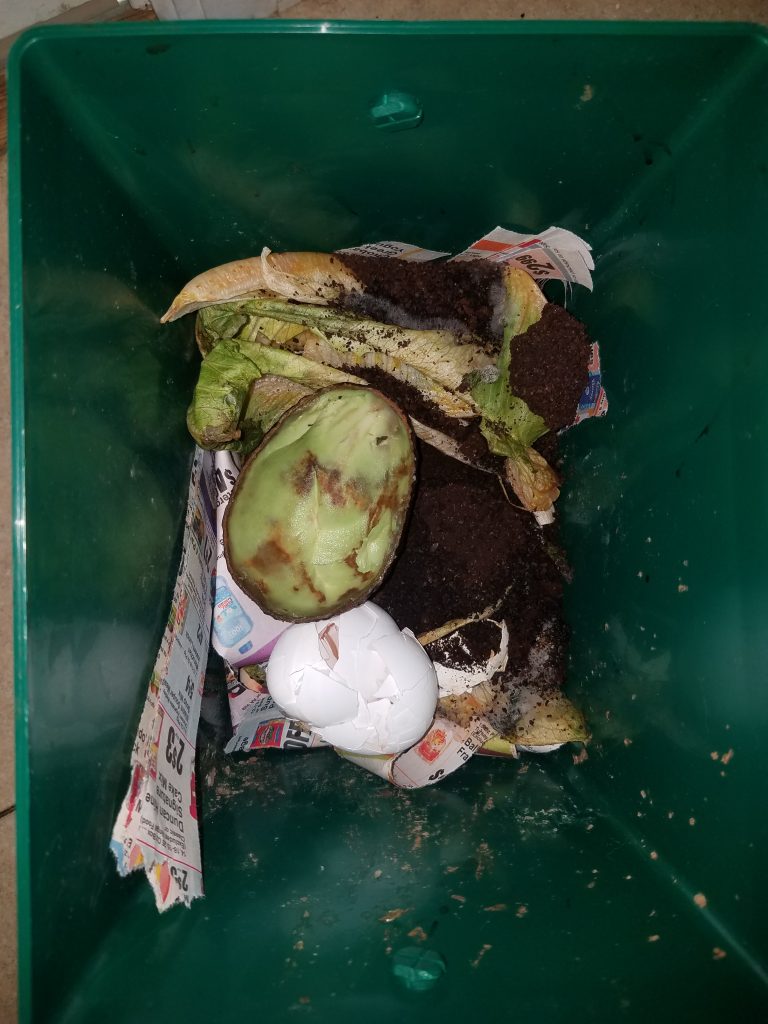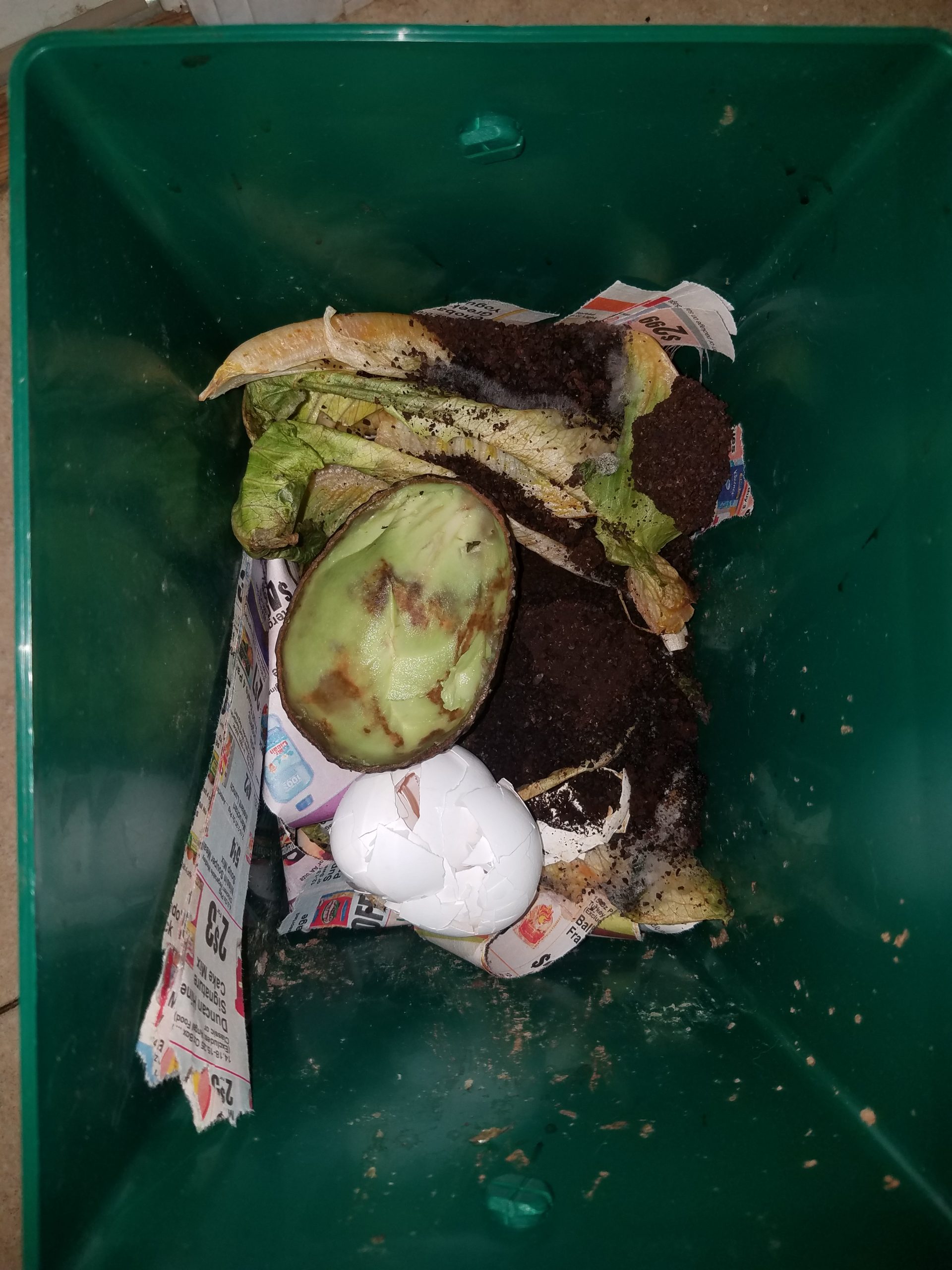
Here is an easy way to start composting at home. “But I don’t have a backyard or garden.” No Problem! You can start composting in your kitchen today.
Why Compost?
Composting is a great way to be green and prevent unnecessary waste from ending up in landfills. It’s also great to create rich soil for your plants or herbs on your window sill. Compost is a very nutrient-rich soil good for herbs and plants in your garden. Instead of buying potting soil, you can recycle the scraps that you already make pretty much on a daily basis.
What goes in compost?
You want to use any organic material that you may have in there. It’s important to have a ratio of greens and browns. “Greens” come from your vegetables matter. These are considered greens in the compost for example:
- Apple skins
- Lettuce Leaves
- Avocado skins
- banana peels
- carrot tops
- eggshells
- coffee grounds
- etc.
“Browns” are wood and leaves. You can use cut up your newspaper or circulars that you may get in the mail.
What NOT to put in compost?
DO NOT Use
- Meat (raw or cooked) will attract bugs or other pests, won’t break down as quickly, and will smell bad.
- Non-glossy paper in the compost. Magazines have ink and other non-organic materials that will not break down and might even prevent the other organic materials from decomposing.
- Fruit pits or nut shells. These take a very long time to break down
- Processed goods like bread or cheese. While they may break down, they will start to smell.
What about the smell?
You may have heard that compost smells terrible, but often commercial compost contains manure. When a compost heap is very large, like in commercial composting, the bacteria generate so much heat that it kills the potentially dangerous bacteria in the manure. Do not be tempted to put your pet feces in the compost since it will not get hot enough to kill bacteria like e-coli. Smells can be easily contained in a covered compost bin. Composting the right materials will avoid offensive smells. See the above list of items not to put in the compost.
How to use compost
After a few weeks, the organics at the bottom of your compost bin will break down into black soil. You may want to mix the compost every few weeks to give everything compost evenly. Simply mix this compost in with your garden soil or use it as the soil itself. Another use is to make “compost tea”. Mix the compost with a few gallons of water and let it sit a day. When you water your plants, use this mixture and give your potted plants some nutrients.

